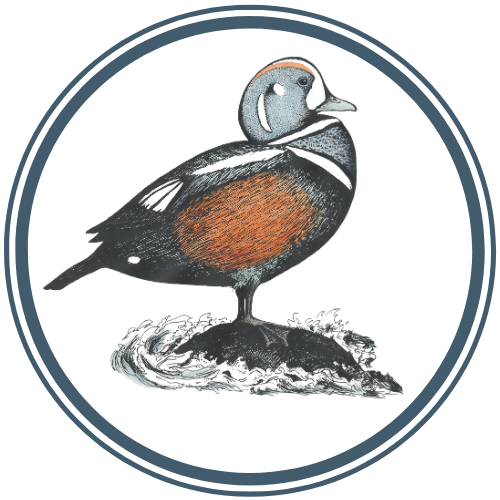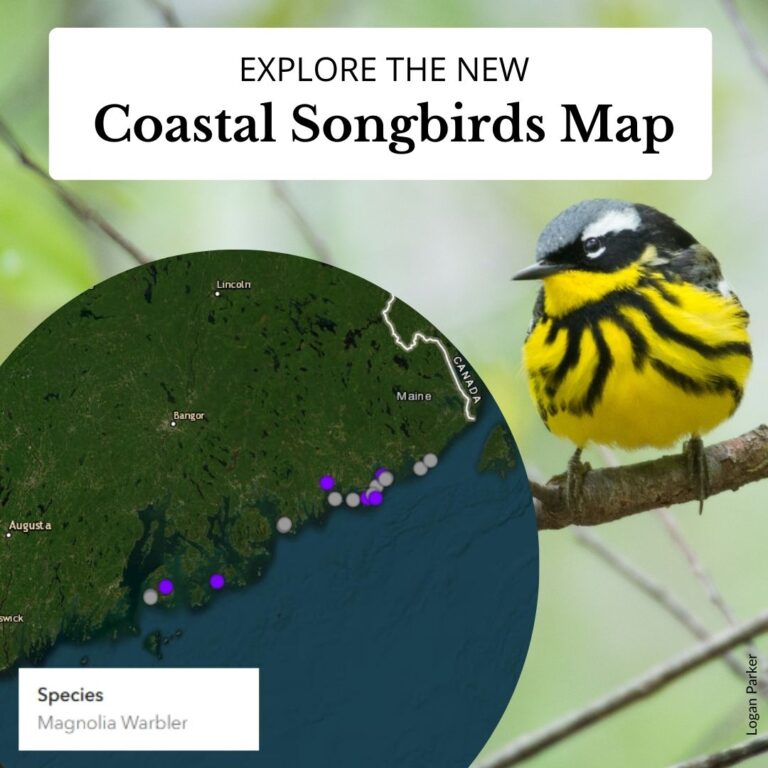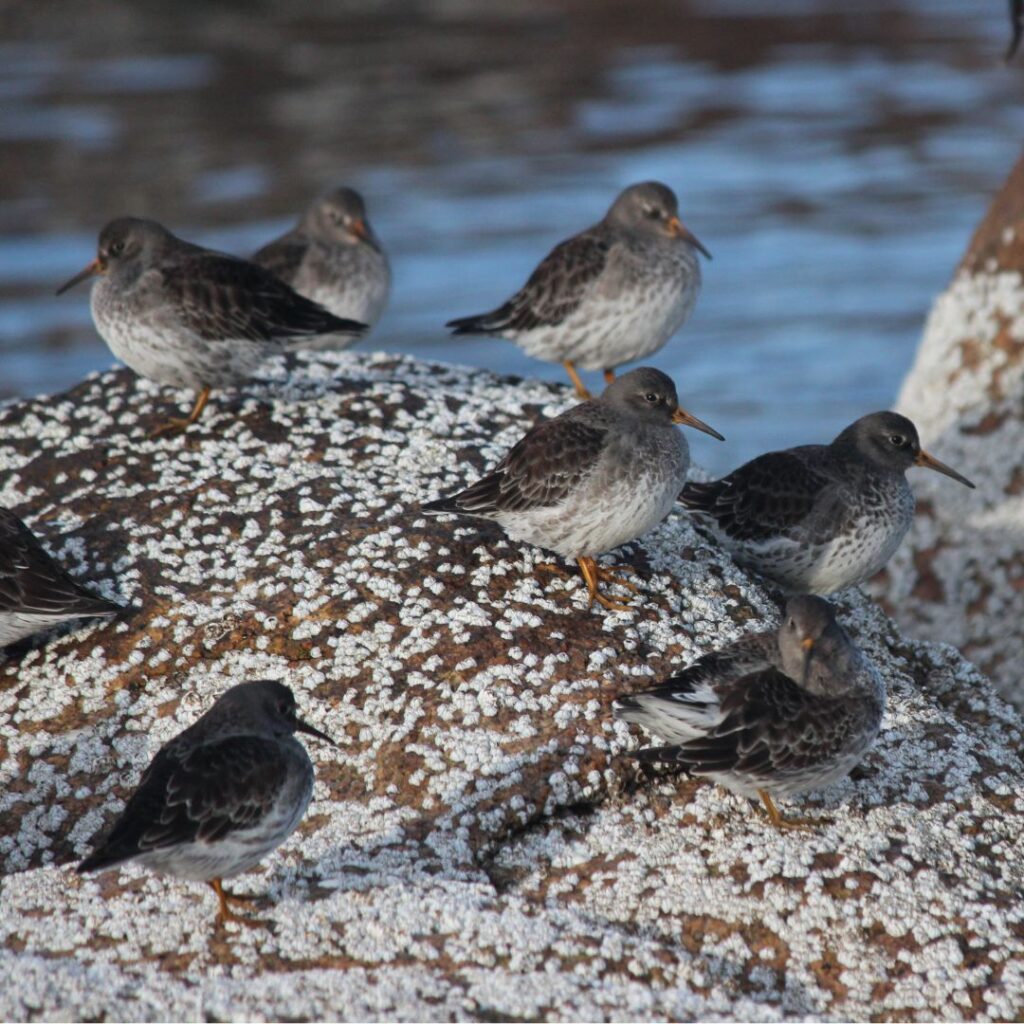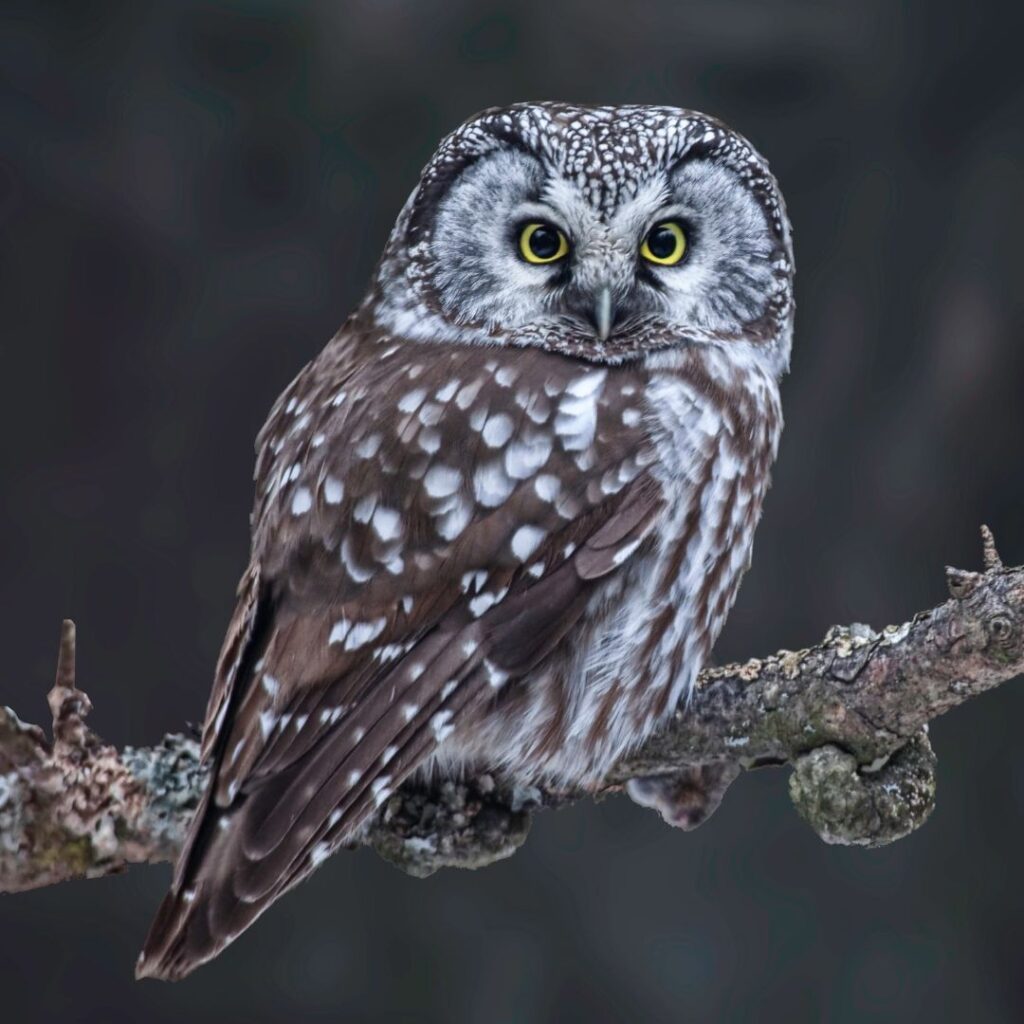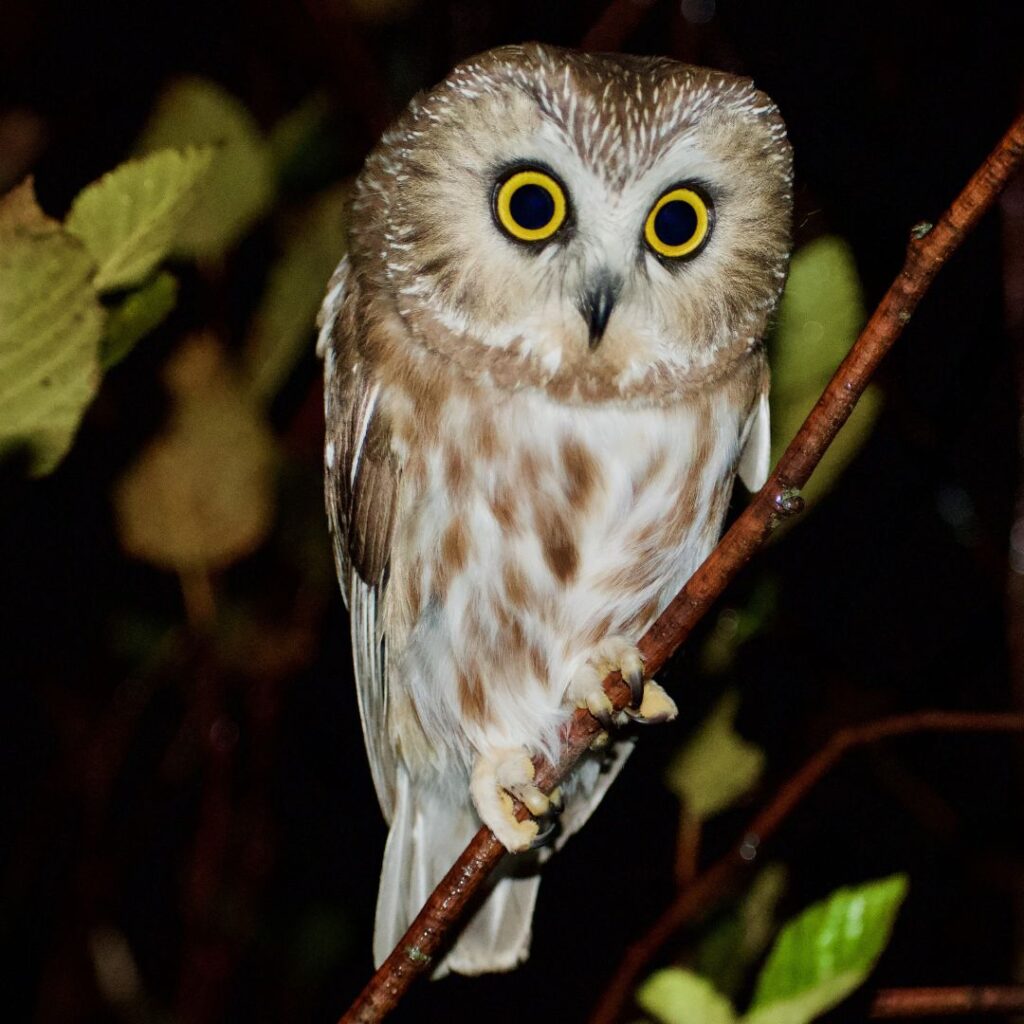
Using Bioacoustics to Study Breeding Songbirds on Coastal Maine Islands
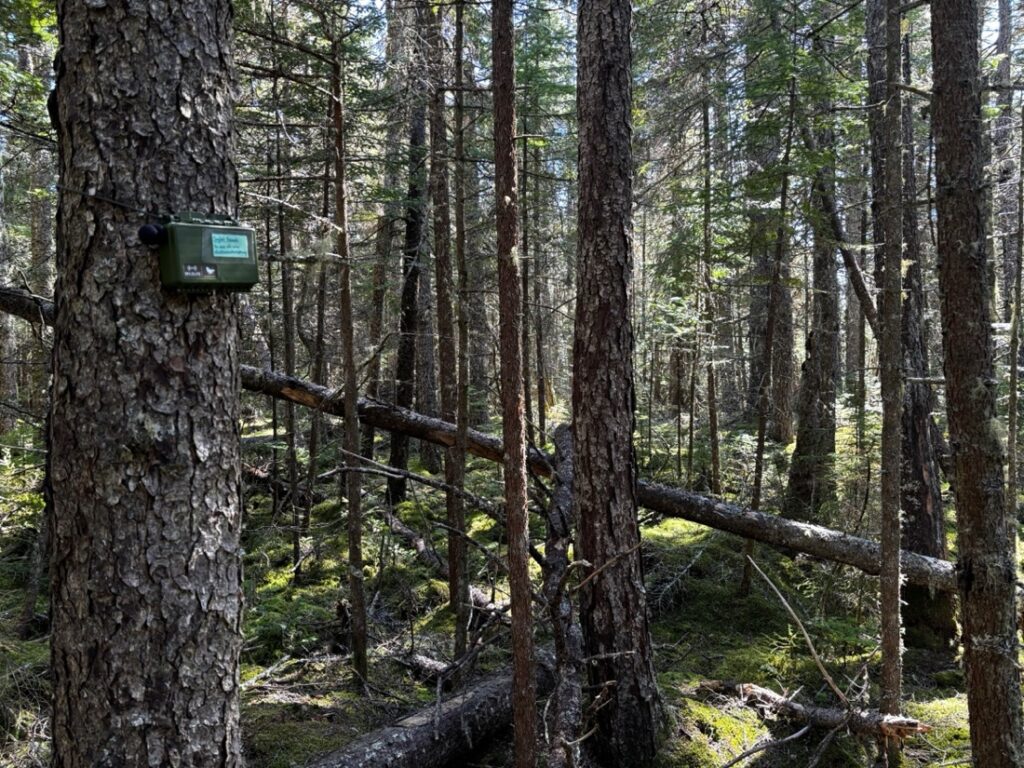
A recording unit deployed for the breeding season on Knight Island, April 2024. (Photo by Elliot Johnston)
The coast of Maine is a dynamic place to study songbirds. As the climate has warmed, southern resident species—such as Carolina Wren and White-eyed Vireo—have pushed into Maine along the southern coastline where winter temperatures are more mild. At the same time, boreal birds at the southern edge of their range in Maine—such as Blackpoll Warbler and Swainson’s Thrush—find suitable breeding habitat in the cool, moist spruce-fir forests of the Downeast coastline. The coastline of Maine contains hundreds of forested islands, many of which have few records of their breeding bird communities. In 2024, MNHO launched the island songbird project in an effort to inventory and monitor island breeding bird communities in the state. As Maine adjusts to changes in its climate, it will be vitally important that biologists and policymakers have access to baseline data on the distributions of expanding southern species and retreating northern species. Without a clear picture of Maine’s coastal species and ecosystems, we won’t know how to protect them in the future.
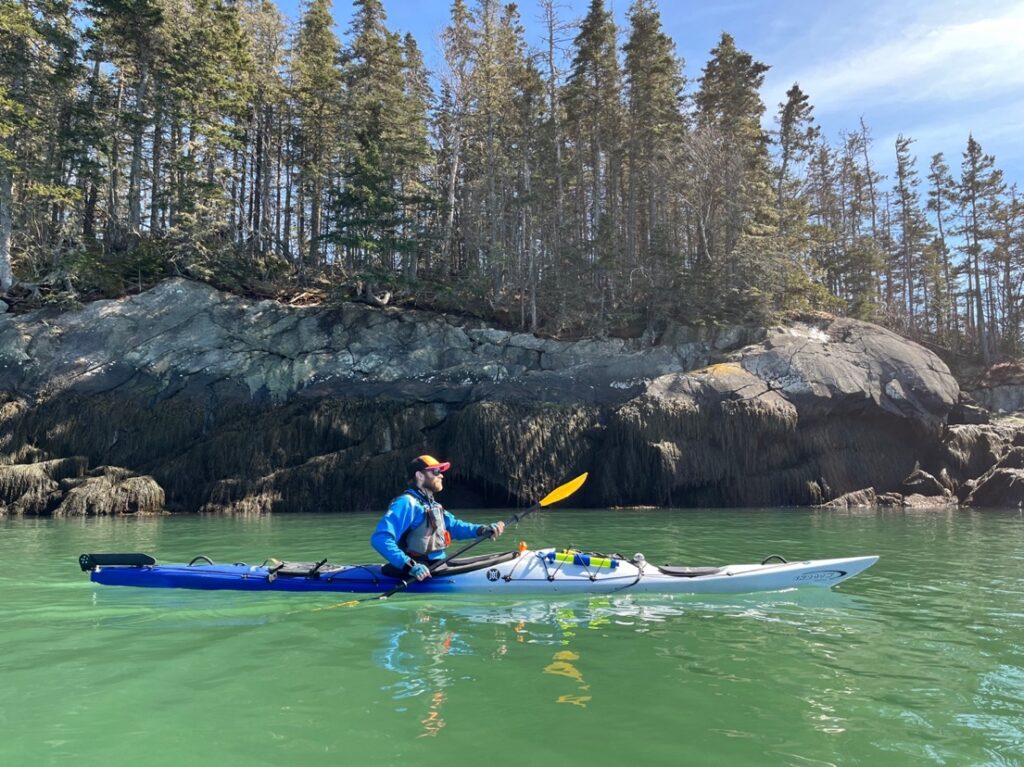
Elliot leaving Anguilla Island after deploying a recording unit, April 2024. (Photo by Alice Hotopp)
Latest
Project Updates
Stay Connected
Follow the progress of this project through our newsletter or on social media
Explore the Data
Related Content
-

Purple Sandpiper Surveys
Repeating Historical Purple Sandpiper Surveys to Update Status of Overwintering Population In the early 2000s, Glen Mittelhauser and collaborators…
-

Boreal Habitat Owl Surveys
Owls are among the most charismatic and recognizable orders of birds in the world, yet their secretive life histories,…
-

Petit Manan Owl Monitoring Station
Saw-whet Owl GPS Tag Fundraiser was a Success! We exceeded our spring fundraising goal! Thanks to your generous support,…
